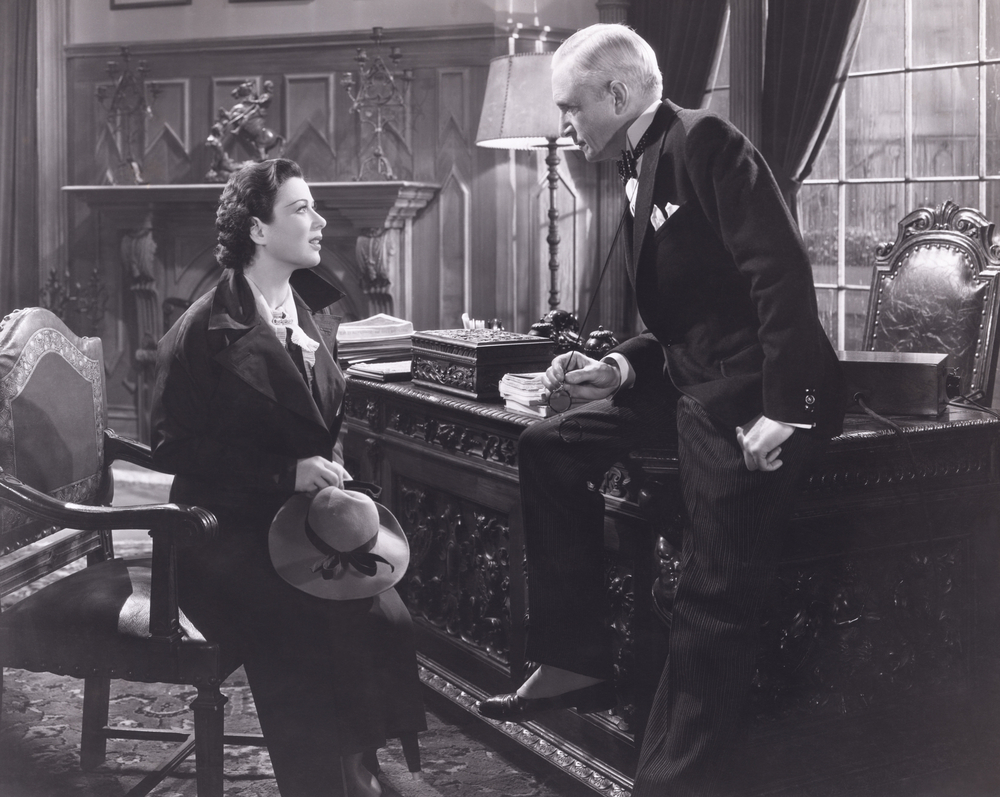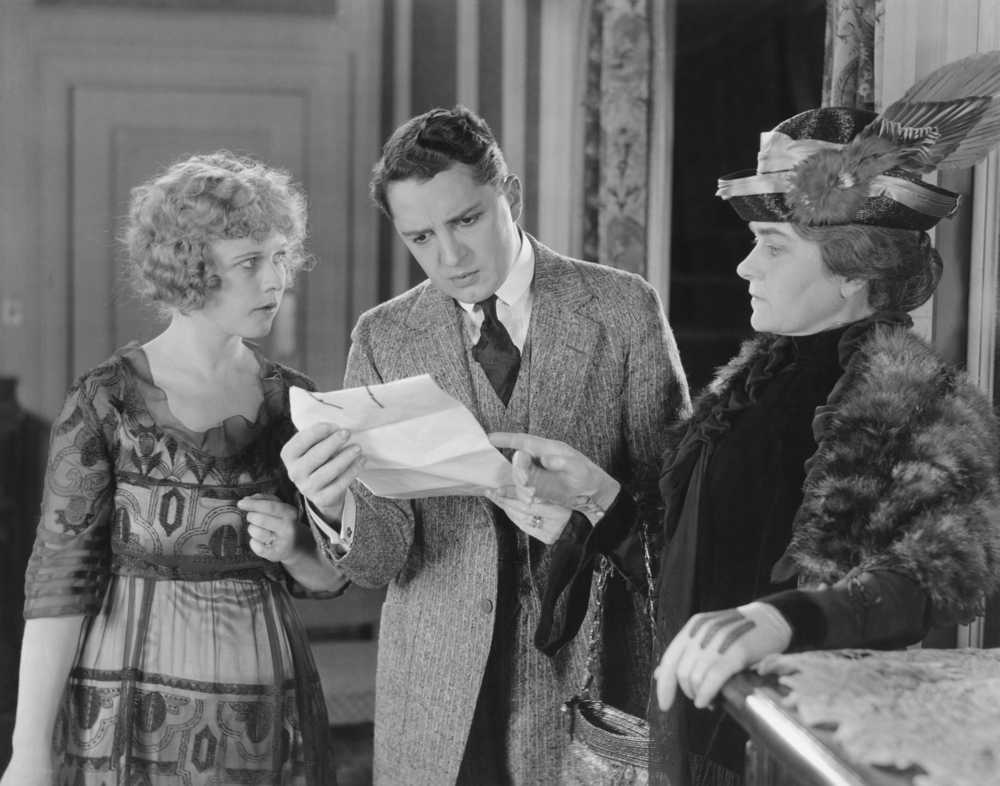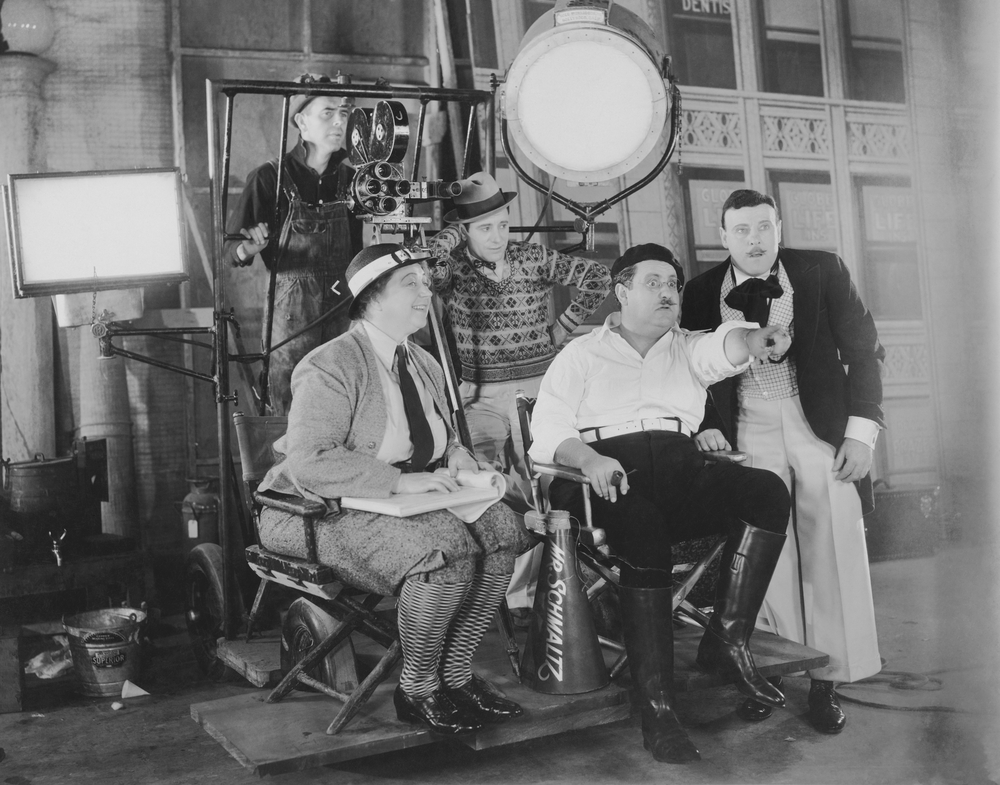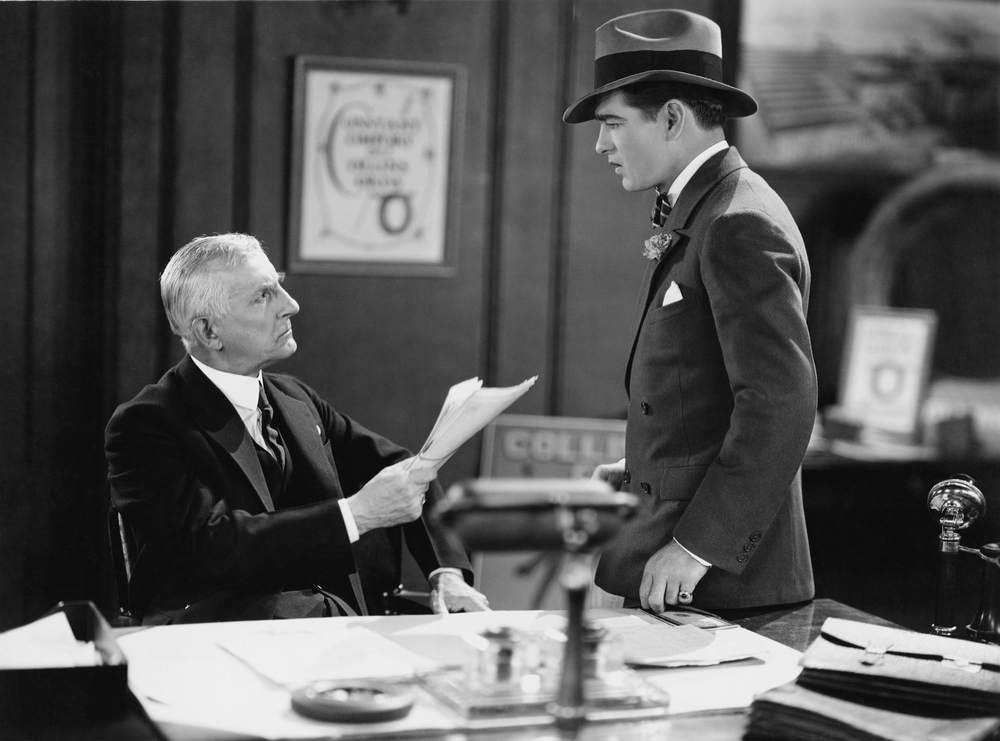Netflix Film and Scripted TV Series Streaming Contracts

Netflix Film and Scripted TV Series Streaming Contracts
Film and Scripted TV Series Streaming Contracts Attorney Sebastian Gibson, The Right Choice in Film and Television Series Streaming Contracts and Entertainment Lawyers
Film and Scripted TV Series Streaming Contracts Attorney Sebastian Gibson will tell you, there has never been a more exciting time for film and television production companies looking to produce and pitch film projects and television scripted and unscripted limited dramatic and reality series to streamers like Netflix, HBO, HBO Max, Amazon Prime Video, Hulu and the BBC, not to mention Disney Plus, Peacock, Discovery Plus, Paramount Plus, and Apple TV.
If that’s not enough for producers, directors and writers to get excited about, there’s still the networks, other players in Britain, and can it be long before we see Facebook and other social media companies joining the streaming revolution and reaching out to film and television producers for content.
No matter what type of TV project you have, a dramatic or reality television show, a limited series or one that could seemingly go for six or more seasons depending upon how successful it is and whether a franchise or universe could be built around it, there has never been a better time to be developing a television series project or to pitch it to Netflix.
With streamers like Netflix holding the purse strings however, the streamer essentially pays talent handsomely and a premium over production costs in return for wanting to retain most of the worldwide rights. In essence, the production company signs away the majority of future revenue opportunities to the company for a larger payment up front.
A production company that would otherwise make money through licensing deals, syndication and by other means such as merchandising and product placement will for the most part not be able to reap the rewards they would otherwise do so if the show is a big hit.
Even that larger payment up front to a producer doesn’t necessarily mean a production company will make a profit after the first season of a television series. That’s because of the costs a streamer will either deduct, such as a fee for distribution of a show, or because of the obligations a streamer may put on a producer to pay such items as residuals to talent when the episodes are shown on the streaming service’s platform.
While a production company may negotiate a bonus if a show is renewed for subsequent seasons, such bonuses simply are not nearly as lucrative for a producer as would be if the production company had retained all the rights.
To retain more of the rights to licensing and syndicating and profiting from their projects, they will need to pursue independent projects that offer a better shot at reaping the rewards for a successful project. The trouble with that plan while the pandemic continues to rage is that with theaters closed and networks becoming less and less relevant, streamers are almost the only game in town at present.
The advantages of working with a streamer for the most part is that the streamer takes a hands-off approach and lets the production company make the project they want to make once it is greenlit. Additionally, the production company has less risk and less riding on the project if it’s a failure even if that means the potential for a pot of gold at the end of the rainbow for a successful project is only a tin cup with some silver.
Despite these issues in dealing with streaming services, what we are witnessing right now is truly only the beginning of a golden age of content production for film and television producers of scripted and reality series and streamers that will drive a creative environment in every facet of the film and television industry for generations to come.

Film and Scripted TV Series Streaming Contracts Attorney Sebastian Gibson
With law degrees in both California and Great Britain and over 40 years of combined practice in California and London, Film and Scripted TV Series Streaming Contracts Attorney Sebastian Gibson is the California entertainment attorney to turn to for film and television projects being produced in the U.S. and the U.K.
California entertainment lawyer Sebastian Gibson has been named a Top Lawyer for the past 12 years in a row by the prestigious Palm Springs Life Magazine and has been rated “Superb” (their highest rating) by Avvo which rates attorneys all across the U.S. He has been called “Brilliant” and “A Legend” and is recognized as a celebrity lawyer in the U.S. and the U.K. having been asked to appear on Fox News as well as ITV National News in London as such.
As an experienced entertainment lawyer in California with law degrees both in California and Great Britain and over 40 years of practice both in California and in London, one is constantly headhunted for positions such as Senior Vice President of Legal Affairs for a film and television studio or production company, or some other position with an exalted title which essentially means the lawyer will work long hours every week and rarely see the light of day.
The problem with taking any positions like that is 1) you’re generally required to work in Los Angeles, which with it’s traffic and other issues is basically a pit and 2) you’re expected to take the side of the entertainment entity against creative people when drafting or negotiating contracts with them, and 3) even if you represent the creative people, you can’t afford the time to truly assist them with their legal concerns, or be of help to them with the creative aspects of their work.
But even more important than those drawbacks is that when you’re working for an entertainment conglomerate or even a small production company, you generally have no input in the creative side of the business. Not that most attorneys have had experience making films or a TV series (though many are frustrated musicians), but for those who have a creative background, it’s a rare situation where an entertainment head of legal affairs is able to have any part in the creative decisions for the entity.
An entertainment attorney at a large entertainment law firm isn’t in a much better position. Large entertainment law firms who represent large entertainment companies similarly hire lawyers to follow strict marching orders of the senior partners. An attorney who wants to be involved in the creative side of entertainment clients in film, television, publishing, modeling, music, art or any other aspect of entertainment is rarely able to do so. An attorney in a large entertainment law firm in most cases isn’t even allowed to contribute to the law firm’s website.
It’s the attorneys in more boutique entertainment law firms or solo practitioners who have the ability to pick and choose their clients. Such attorneys can refuse to take untenable positions foisted on them by senior partners. They can have outside interests or their own entertainment projects and by doing so gain valuable experience. But most importantly, they are not just attorneys but counselors as attorneys are meant to be.
An attorney without the leash that comes with a big law firm is able to work independently and more creatively. They are able to spend the time, even without charging a client if they wish to do so, to do whatever it takes to help a client the most to get a great project created, developed and produced rather than to simply produce something mediocre because that what a large entertainment conglomerate feels has worked for them in the past.
The client who feels so lucky to have a streaming service or a network or cable channel interested in their project and who will take any type of offer made to them either with an attorney’s advice or without, is throwing away their chance to truly participate in the profits of their project simply in the hopes that by taking the first offer made to them will 1) show they’re easy to work with or 2) lead to more work down the road at which time they can hold out for a better deal on the next project. And an attorney who advises them to take a bad offer is not worth the money they charge for that advice.
California Entertainment Attorney Sebastian Gibson thinks differently. This could be your one shot at recognition, and for a fair share for creating, writing, directing, producing or being a showrunner on a brilliant project, and even if it is not, you’re short changing yourself when you agree to work for less than what’s fair for your creative and inspired work.
Work with an attorney you can have faith in to stick up for you, who will be at your side when you need them and who is as involved in your project as you are. Choose an attorney who recognizes what you’ve created, what you can add to a great project, and whose guidance and creative abilities can be of value to you rather than someone who just plays with legalese and numbers.
When considering who to retain to represent you, your endeavors or your project in entertainment, the right attorney can make all the difference. The right choice is California entertainment lawyer Sebastian Gibson.

Some Examples of Successful Films Scripted and Limited TV Series Developed and Pitched to Netflix and How Long It Can Take To See A Project Come to Life
The Queen’s Gambit
In 2017 Scott Frank approached Netflix about adapting “The Queen’s Gambit” – Walter Tevis’ 1983 book about a young chess prodigy who overcomes a fondness for pills and alcohol to become the world’s chess champion, according to Netflix VP of original series Peter Friedlander and they felt it would be a compelling tale. They just never could have imagined it would become a global phenomena or the most watched scripted limited series ever at Netflix.
Scott Frank, co-creator, executive producer, writer, director and showrunner along with Allan Scott, the other co-creator and an executive producer of “The Queen’s Gambit” was also executive produced by William Horberg. The production companies were Flitcraft Ltd and Wonderful Films.
Scott was involved in attempting to get the book onto the screen since 1992, when he purchased the screenplay rights from Walter Tevis’ widow. It wasn’t until March 19, 2019 that Netflix gave the production a series order consisting of six episodes, which later became seven. It was released on Netflix in 2020, some 38 years after Scott purchased the screenplay rights.
The Netflix synopsis was “Haunted by her personal demons and fueled by a cocktail of narcotics and obsession, Beth transforms into an impressively skilled and glamorous outcast while determined to conquer the traditional boundaries established in the male-dominated world of competitive chess.”
As Friedlander stated in a blog post on Netflix, “Beth is an underdog who faces addiction, loss and abandonment. Her success – against the odds- speaks to the importance of perseverance, family, and finding, and staying true to, yourself.”
And that’s how you obtain, create and pitch a winning combination to Netflix, along with years and years of perseverance, just like Beth’s.
Stranger Things
Stranger Things was created by two bothers, Matt and Ross Duffer known, not surprisingly, as the Duffer Brothers. Their story doesn’t begin when they first pitched Stranger Things to Netflix, however. It began when Matt and Ross Duffer first started making movies in the third grade after their parents bought them a Hi8 video camera.
Later, they both attended Chapman University and began to make short films. After graduating, they wrote the feature Hidden, which resulted in a bidding war in Hollywood which was eventually won by Warner Brothers. The film, however, never made it inside theaters.
Despite the low, the brothers caught the attention of filmmaker M. Night Shyamalan, the filmmaker who gave the brothers writing and producing jobs on the first season of Wayward Pines.
After that, the brothers felt they were ready to write their own series and after preparing a script, they then put together a 23-page pitch book or “bible” which together with the pilot script they wrote, focused on the themes and style of what they envisioned the show could be, look and feel like.
Filled with images from past successful films and emotion provoking events to set the stage, the bible contained pages devoted to an introduction, the conspiracy, the story, the structure, the tone and style, horror, the characters, in this case, the kids, the outsider, the teenagers, and the adults, all the while also barraging the readers with accompanying themes and images and finally concluding with a page entitled “franchise potential” for their closing statement.
The Duffer Brothers shopped Stranger Things as a series to between 15 to 20 cable and television networks, all of which rejected it.
In 2015, Dan Cohen, Vice President of 21 Laps Entertainment showed the script to founder, Shawn Levy and they subsequently purchased the rights to the series.
The series was then pitched to Netflix. Backed by Shawn Levy’s production company and Levy’s experience in film and television production, in April 2015 Netflix quickly picked it up, purchasing eight episodes for a 2016 release. In 2020 the fourth season began production but in March, production was stopped due to the COVID-19 pandemic. Production resumed in September 2020.
The Irishman
In an interview with The Guardian newspaper, Martin Scorsese stated that contemplation of such a project started in the 1980s when he and Robert De Niro tried to come up with a project for the two of them.
Various conversations exhausted various ideas, but after reading a copy of the 2004 book I Heard You Paint Houses written by Charles Brandt, Scorsese became interested in directing a film adaptation of the book and in casting De Niro, Al Pacino, and Joe Pesci.
In 2007, The Irishman began its development phase, but because of its budget, financing which initially was offered in 2016 for $100 million was later withdrawn. International distribution was offered for $50 million with Paramount retaining domestic distribution, but in February 2017, Paramount dropped domestic distribution rights.
Eventually, in 2017 after Paramount grew concerned about the ballooning costs, and after reaching out to Netflix, the streaming service ultimately came forward after other players may have begun to envision the difficulties they might face in recouping the film’s costs through ticket sales, and bought the film rights for a reported $105 million. Netflix agreed to finance the film’s (at that time) $125-million budget. But by August, it was reported that the film’s cost was $159 million. However, due in large part to the visual effects needed to make De Niro, Pacino, and Pesci appear younger at points during the film, the final cost has been said to have come in at $175 million.
Scheduling issues involving the A-list stars and Scorsese caused the start date to keep getting pushed back. But it was the film’s theatrical release issues which became a bigger issue.
Historically, studios run films in theaters for 75 to 90 days before allowing them to debut on home entertainment platforms. They traditionally split the profits with the exhibitors. Netflix was allegedly willing to allow “The Irishman” to remain in theaters for 45 days before premiering it on its streaming service, and was reportedly even open to giving exhibitors up to 75% of the ticket sales.
But even that wasn’t enough to entice major chains such as AMC and Regal. The film was only seen in a couple hundred U.S. theaters, venues primarily belonging to smaller circuits for an exclusive theatrical run of 26 days.
The Irishman was released on November 1, 2019, in the United States. The film did not play at the theaters owned by AMC, Cinemark, Regal, or Cineplex. Two major chains reportedly offered to exhibit the film if given an exclusivity window of 60 days, but could not reach an agreement with Netflix. The film peaked at playing in 500 theaters and earned only a worldwide total of approximately $8 million.
Some thought the film would likely would have become a box office bomb given its 209-minute runtime and large budget, while others argued Netflix left millions on the table by not giving the film a wide theatrical release, feeling it could have earned at least $100 million domestically.
However, by showing its swagger and ability to spend the sums necessary to finance large budget films like The Irishman and to favor its own streaming service at the expense of theater chains left only with short windows for exhibition, Netflix flexed it’s muscle at a time when competition by other streamers was in the works. As a consequence, Netflix has since remained the king of streaming services despite the increased competition of HBO Max, Amazon Prime, Apple, Disney Plus, Hulu, Peacock and others yet to come.
It is interesting to note however, that Martin Scorsese’s next film, “Killers of the Flower Moon” starts filming in March 2021 with Robert De Niro and Leonardo DiCaprio. It will be released theatrically by Paramount and streamed on Apple TV and has a reported budget of $200 million. And with that, the competition among streamers continues to get hotter.
Man vs. Bee
If you’re one of the most recognizable comedians in every part of the globe and have hundreds of millions of fans around the world, you have an easy sell to Netflix.
Rowan Atkinson and screenwriter and producer Will Davies created a comedy series with the unique format of ten minute episodes for Netflix. The series is almost certain to be a major draw for Netflix in 2021.
As an entirely new character, Atkinson, while no longer Mr. Bean, but just as brilliant a comedian as ever, he finds himself at war with a bee while house sitting a luxurious mansion.
The Gray Man
The Gray Man was first developed in 2016 based on a book published in 2009 with the same name by Mark Greaney. The Gray Man was the first of nine Gray Man books by the author who has authored or co-authored a number of Tom Clancey books.
New Regency initially planned the film to be a Brad Pitt vehicle, but it never happened. Then the Russo Brothers, Joe and Anthony Russo took on the project and for years have slowly been developing it. Their hope is to create a franchise and build another universe of characters and films.
Unlike the Marvel universe though, this film has aspects more akin to James Bond. Think espionage, spies, CIA operatives, and assassins.
Netflix took on plans to adapt the book in 2020 and filming is scheduled to commence in 2021 with a $200 million budget.
Due to Covid-19, the start of production is on pause as this article was written.
Red Notice
An example of a film with a large budget which managed to be finished despite the pandemic and despite a switch from initially being fought over in a bidding war to Netflix stepping in is Red Notice.
Initially, a number of major studios fought for the rights, with Universal and Legendary eventually winning them. However, when the budget ballooned to as much as $150 million, Universal apparently showed some hesitation. Runner up Netflix in the bidding war then stepped in.
The film was initially pitched by director, producer, screenwriter, and actor Rawson Marshall Thurber who wrote the script and has directed the film.
Exit West
Barack and Michelle Obama and their production company, Higher Ground, along with the Russo Brothers will be producing Exit West, a film adaptation of the book by the same name in which the global refugee crisis is center stage.
The novel was on Barack Obama’s list of top books for 2017 when it was published. The author is Mohsin Hamid. Some wonder if this film could land Netflix an Oscar with the Obamas connected to the project.

Netflix’s Budget and Thirst for Studio Space
Netflix has been projected to spend $19 Billion on original content in 2021. That’s an increase of about 10% from the already whopping $17.3 billion it spent in 2020.
However it’s even been projected that Netflix may have spent as much as $20 billion in 2020 and if that projection is accurate, 2021 will likely even be higher.
It’s not unrealistic therefore to expect Netflix’s budget to do anything other than to continue to increase in the years after 2021.
The Netflix U.K. budget is second only in size to the Netflix U.S. budget as the U.K. is their biggest hub in all of Europe.
In 2020, Netflix doubled it’s U.K. production budget to $1 billion.
In 2019, Netflix set up a major production hub at Shepperton Studios in Shepperton, Surrey, outside London. Shepperton Studios has 15 stages which range in size from 3,000 square feet to 30,000 square feet 10 acres of backlot and thousands of square feet of workshop space.
Shepperton is part of the Pinewood Group which also owns Pinewood Studios in the UK with whom Disney has a deal, and other studios in Berlin, in Canada and elsewhere.
Once Netflix tied up the studios at Shepperton, Surrey, outside London, U.K. became even more booked up before for film production causing a race for new space to be built.
But land in London and Southeast England is hard to come by and is extremely expensive. While the industry would like to see the film industry less centered around London, investors are somewhat more wary of committing to financing locations father away from the English capital.
Belfast wonderfully served as the base for HBO’s Game of Thrones and Belfast Harbour Studios has more than 120,000 square feet of space for studios, workshops and offices.
In 2020, plans for the development of Ashford International Film Studios in Kent, England were approved. The project which includes 240,000 square feet of production space will be built on a 13-acre site at Kent’s derelict Newtown Railway Works. It will also feature a media village an educational center and a hotel.
The studios project in Kent is advantageously located close to the Ashford Eurostar stop, which provides links with Netflix’s European hub in Amsterdam and France’s TF1 television network.
But building new studios takes time. As an example, the project in Kent isn’t expected to open until early 2022.
T.C.D.I,, an investment company which purchased a significant interest in Twickenham Studios hopes to open 1m square feet of production space by 2024 by expanding Twickenham, in Richmond, London and at new facilities in Liverpool by investing a significant amount of funds in new UK studio space.
Another project in the works is Eastbrook Studios in Daggenham, in East London which when built, will house up to 12 sound stages and prop workshops on a 22-acre former factory site. Filming is hoped to start at the Daggenham studios in mid-2022.
Entertainment Attorney Sebastian Gibson
With offices in Palm Desert, in the Palm Springs area, in Newport Beach in the Orange County community of Corona del Mar, and operating from our location near Malibu outside of Los Angeles and serving London from our meeting location in Shoreditch, we represent international entertainment clients and their projects and endeavors throughout the world.
Whether your endeavors are in film or television, producing, directing, acting, writing or creating, or in music, publishing, modeling, sports or in theatrical productions, Entertainment Attorney Sebastian Gibson is the right choice for all of your needs.

Film and Scripted TV Series Streaming Contracts Lawyer Sebastian Gibson
At the Law Offices of Film and Scripted TV Series Streaming Entertainment Contracts Lawyer Sebastian Gibson, we specialize in all facets of entertainment law. With expertise in film and television as well as acting, publishing, modeling, music, stage productions, celebrity representation, and international entertainment matters, Film and Scripted TV Series Streaming Entertainment Contracts Lawyer Sebastian Gibson is the attorney to turn to for all your entertainment matters worldwide.
Having performed internationally on the stage and national television as a musician and singer with an Oscar nominated actress, then later as a songwriter, screen writer, author of a musical and as a published author, and finally with a strong interest in the law, it was always natural Sebastian Gibson would become an acclaimed and sought after entertainment lawyer.
Today Film and Scripted TV Series Streaming Contracts Sebastian Gibson provides creative and legal advice to artists and producers in California, across the U.S., in England, Wales and throughout Great Britain, and worldwide.
As an experienced entertainment lawyer in California and England, Film and Scripted TV Series Streaming Contracts Lawyer Sebastian Gibson’s primary interest is in assisting the most talented individuals to gain recognition and the creative aspect of bringing quality projects to fruition across the entire spectrum of entertainment from film, cable, streaming, television, documentary, music video and animation productions to screen writing, acting, performing live, stage productions and musicals, world tours, songwriting, publishing, modeling, fashion design, sports, creative art, and artist representation.
Film and Scripted TV Series Streaming Contracts Lawyer Sebastian Gibson remains committed to the representation of artists, writers, musicians, models, artists, designers, writers, directors and producers throughout the entertainment industry in the U.S,, the U.K, and worldwide.
As a respected writer and published author, Film and Scripted TV Series Streaming Contracts Lawyer Sebastian Gibson also continues to providing cutting edge articles on the entertainment industry, some of which may serve as an outline for a series of courses to be taught in a major university’s entertainment curriculum.
Focused as he is on current and future developments in the entertainment industry, today one of the most exciting developments is the current golden age in the production of limited dramatic scripted series and reality television for streaming services which are fast becoming the lifeblood of the film and television market and which is creating a golden age of creativity that will last for decades to come.
While Covid-19 restrictions and safety precautions have significantly limited film and television production and severely limited concerts, live performances and world tours, Sebastian Gibson continues to assist artists and producers to bring their talent, their creations and projects to a world starved for a return to what was once normal in our lives.
Content produced on streaming services like Netflix, whether scripted dramatic television, reality shows or streaming musical performances can never fully replace what was once normal in our lives, but they can in some small but important measure help to remind us of what we long for and what we were able to enjoy when we could safely socialize, take in a movie at a theater or attend a live concert, or even simply to listen to some live music in a restaurant or go to a stage show.
By fostering such creative content to be produced, Film and Scripted TV Series Streaming Contracts Lawyer Sebastian Gibson hopes some measure of hope can be brought to everyone grappling with the effects of this terrible pandemic.




